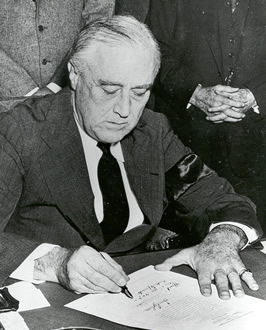The Truman Doctrine was an address of the foreign policy and the national security of the United States, and also Turkey and Greece. The United States received an urgent appeal from Greece for economic and financial assistance, if they did not receive aid it seemed as though they would not survive as an independent nation. Greece was never a wealthy country and it lacked many natural resources, and it has “suffered invasion, four years of cruel enemy occupation, and bitter internal strife”; it was reported that the “Germans had destroyed virtually all the railways, roads, port facilities, communications, and merchant marine. More than a thousand villages had been burned. Eighty-five per cent of the children were tubercular. Livestock, poultry, and draft animals had almost disappeared. Inflation had wiped out practically all savings.” Tragic conditions, a militant minority and human exploitation have made economic recovery seem impossible. The Greeks were asking for help to resume purchases of the bare essentials that were unavailable at the time. The Greeks also asked the United States for political aid “the assistance of experienced American administrators, economists and technicians to insure that the financial and other aid given to Greece shall be used effectively in creating a stable and self-sustaining economy and in improving its public administration”. Truman tells the joint session of Congress that the aid the United States has already provided for Greece is inadequate and that the United States, as a self governing democracy, must do more for Greece. The British had been helping them previously but they can no longer offer economic support after March 31st.
Turkey is another nation that Truman mentions “as an independent and economically sound state is clearly no less important to the freedom-loving peoples of the world than the future of Greece.” Turkey was better off than Greece but Truman still urged that Turkey is also in dire need of American support. Turkey is seeking aid for the purpose of effecting that modernization necessary for the maintenance of its national integrity to preserve the order in the Middle East. Truman says: “We are the only country able to provide that help.” “The disappearance of Greece [and Turkey] as...independent state[s] would have a profound effect upon those countries in Europe whose peoples are struggling against great difficulties to maintain their freedoms and their independence while they repair the damages of war.” Truman then asks Congress for “assistance to Greece and Turkey in the amount of $400,000,000 for the period ending June 30, 1948”and “$350,000,000 for the prevention of starvation and suffering in countries devastated by the war.” He also asks Congress for commodities, supplies, and equipment for the two nations, and to authorize the detail of American civilian and military personnel to Greece and Turkey.


